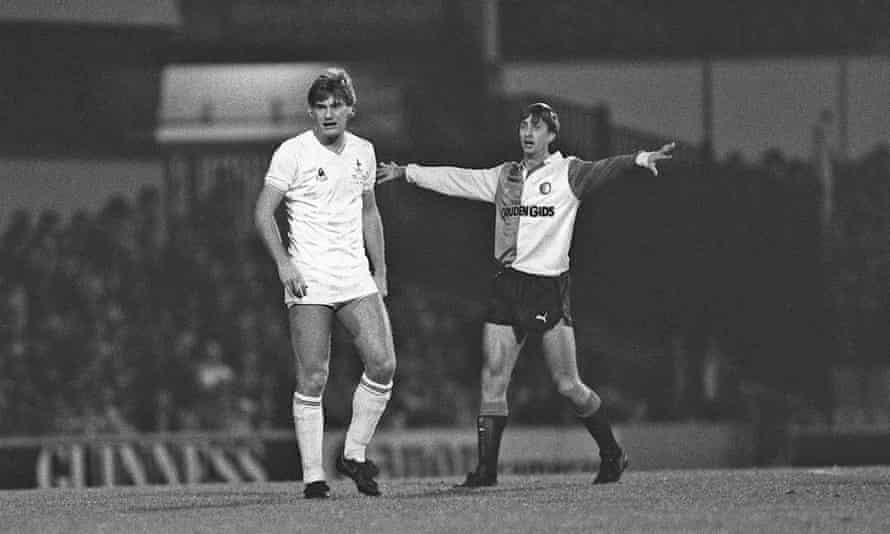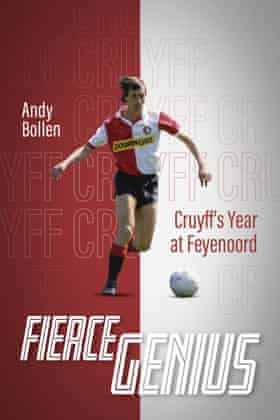‘Feyenoord forever, Cruyff never’: when Ajax legend crossed the divide
Football might be merciless. Even the greats are made to undergo. The narrative which has at all times been put out there’s Ajax rejected Johan Cruyff and reneged on a contract. They didn’t. However, they intentionally compelled Cruyff’s hand, maybe making an attempt to embarrass the participant, hoping, and understanding, he wouldn’t settle for the commonplace contract and so they might cease the huge gate funds. It might be true that that they had determined he was previous his greatest and regardless of all the pieces he gave the membership, he was now not of any use, aged 36. But Cruyff felt the hiatus in the US had prolonged his profession.
The time may need been proper, subsequently, to return and communicate to Feyenoord. Cor Coster [Cruyff’s father-in-law and agent] had established nice contacts at De Kuip, and so they had speculatively steered if the Amsterdammers had been having second ideas or taking part in hardball, they’d be keen to match an analogous gate-based deal. When the insults began flying, and it grew to become clear Ajax didn’t need Cruyff, Feyenoord’s proposal got here again into the combine. Initially, the proposal may need been filed away underneath ‘audacious’. Cruyff couldn’t ever signal for Feyenoord. Then when they broke it down, he thought: why not? It can be a problem. Who had been Ajax to deal with a legend so shabbily? Feyenoord’s stadium was larger and held 47,000.
Cruyff clarified the complete saga in My Turn, when he defined, intimately: “At the end of the 1982-83 season, I signed for Feyenoord, Ajax was still my team, but the people running it [Ajax] refused to go along with me. I heard they were saying I was too old and too fat and still putting on weight. I had to deal with all their objections. And they also demanded that I should be satisfied with a normal salary and of course, I wasn’t.” With that, Cruyff’s satisfaction and sense of wrongdoing took him to Rotterdam.
By 1983, Feyenoord had toiled and struggled as lesser sides overtook them. Feyenoord had been the first Dutch workforce to win the European Cup, beating Celtic in the 1970 last, in Milan. But by the early Eighties the feeling amongst Dutch soccer followers was even Feyenoord weren’t Feyenoord anymore. They had been now one other massive metropolis aspect who had struggled and hadn’t received a league title since 1974. Clubs like PSV Eindhoven and AZ Alkmaar had joined the get together. Some of their kind in the seasons earlier than Cruyff’s arrival was poor to common. In 1979-80, 1980-81 and 1981-82 they completed fourth, fourth and sixth respectively.
Cruyff’s transfer to Feyenoord might be in contrast in the fashionable period to Lionel Messi signing for Real Madrid, or extra realistically, in pure soccer phrases, Mo Salah leaving Liverpool to signal for a struggling Manchester United, toiling round fifth or sixth, profitable the league and cup double, and being named participant of the 12 months. (For readability, the Dutch Player of the Year is the Dutch Football Association’s award and is voted for by fellow professionals from the prime two divisions. This was received by Ruud Gullit. There was additionally an award voted by influential newspaper De Telegraaf and soccer journal Voetbal International, a prestigious press award known as the Gouden Schoen, the Golden Boot, which Cruyff received.)
Footage of Cruyff signing for Feyenoord is still difficult viewing. A psychiatrist would have a subject day as the chairman, Gerard Kerkum, nervously and coldly speaks to the press as Cruyff sits awkwardly, ready for a pen. Feyenoord coach Thijs Libregts appears like he’s ready on a bus to take him to the dentist for root canal surgical procedure.
Perhaps the worry had set in as the chairman contemplated over the deal and puzzled why that they had even thought-about making any type of strategy to Cruyff. What if there was one other coup? Maybe they remembered the first time he left Ajax. Cruyff had always positioned calls for on his teammates regardless of not being a coach, so that they revolted, stripped him of his captaincy, and Cruyff, feeling betrayed, headed to Barcelona.
Why had Cruyff accepted the supply from Feyenoord? Had anybody thought-about the prospect of how a lot this might go improper? From Cruyff’s perspective, he can be serious about the time Ajax had been holding out and decided to promote him to Real Madrid. He threatened to stop in the event that they didn’t promote him to the Catalans. This was properly earlier than participant energy; Cruyff knew his value and his personal thoughts. He was older in 1983 and his transfer to Feyenoord may need been tough – however he knew he might do it.
The natives had been already stressed and barely confused with all of it. For dwelling video games, attendances weren’t bettering as a lot as anticipated, initially solely rising by two or three thousand. The away fixtures although had all offered out.
Cruyff knew what he needed to do when he performed his first recreation for Feyenoord. He needed to win the followers over. He understood he was the dangerous man. “I had to convince the fans of my loyalty and make sure that we won. Just as I did at Barcelona, the Los Angeles Aztecs, Washington Diplomats and Ajax, I managed to win them over during my first match. I scored a great goal in what was then the Rotterdam Tournament. Everyone started cheering. Then they suddenly seemed to realise they were cheering for someone they hated. For a moment the whole stadium was in a state of total confusion but the ice was broken when they saw how happy my teammates were. To round everything off nicely, we went on to win the tournament.”

However, when he performed his first dwelling recreation at De Kuip, in entrance of the hardcore Feyenoord followers, it was totally different. The supporters who attend league video games don’t are likely to get pleasure from family-friendly competitions and invitational pre-season tournaments. There’s much less likelihood of a battle for a begin. In the first league recreation, followers had positioned banners out to let Cruyff know, in no unsure phrases, what they honestly considered him. One of the few well mannered ones learn ‘Feyenoord Forever Cruyff Never’. Another suggested ‘Cruyff Get Lost’, whereas others had been extra stark with their recommendation and instruction to the board and participant, in language extra befitting of the docks. News footage of the time had photographs of the hardcore followers sad as they ripped up season tickets for the cameras.

Cruyff’s principal considerations had been his health and age. He was an skilled athlete who had performed for over three many years and knew his physique. He may additionally have thought-about the interval between 1979 and 1981, with the time without work, transferring to America, briefly serving to at Ajax, then Levante, as an prolonged break with video games as paid train. Cruyff would know that this era after which taking part in at a decrease commonplace in America had purchased his profession at the very least one other few years.
It was nonetheless a colossal gamble for each Feyenoord and Cruyff. However, the followers and board of the membership had did not consider one essential element. They didn’t perceive the depth of Cruyff’s ferocity and vindictiveness at what he noticed as an act of betrayal. He wasn’t even pushed by cash now, however a dedication to show Ajax improper for daring to imagine he was completed.
Fierce Genius: Cruyff’s Year at Feyenoord by Andy Bollen, published by Pitch Publishing on 15 February, £19.99




